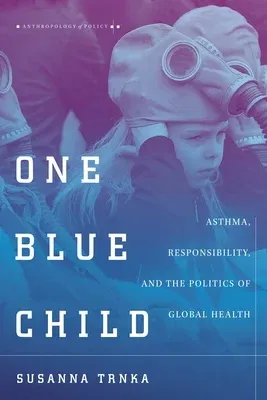Susanna Trnka
(Author)One Blue Child: Asthma, Responsibility, and the Politics of Global HealthPaperback, 6 June 2017

Qty
1
Turbo
Ships in 2 - 3 days
In Stock
Free Delivery
Cash on Delivery
15 Days
Free Returns
Secure Checkout

Part of Series
Anthropology of Policy
Print Length
280 pages
Language
English
Publisher
Stanford University Press
Date Published
6 Jun 2017
ISBN-10
1503602451
ISBN-13
9781503602458
Description
Product Details
Author:
Book Format:
Paperback
Country of Origin:
US
Date Published:
6 June 2017
Dimensions:
22.86 x
15.24 x
1.52 cm
ISBN-10:
1503602451
ISBN-13:
9781503602458
Language:
English
Pages:
280
Publisher:
Series:
Weight:
376.48 gm